
Posted on November 21, 2025
This edition is curated around the concept of One Health, in which the University of Pretoria plays a leading role globally, and is based on our research expertise in the various disciplines across healthcare for people, the environment and animals.
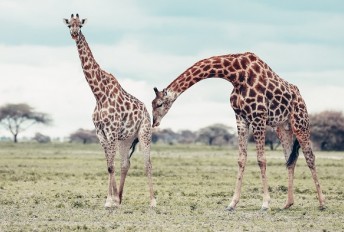
Posted on November 03, 2025
A new study by researchers at the University of Pretoria (UP) and the University of Adelaide in Australia has revealed the real function of the giraffe’s long legs ¬– to reduce blood pressure.
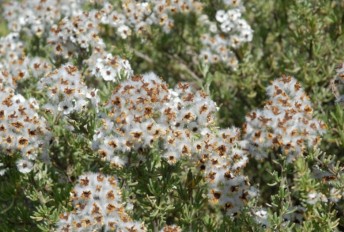
Posted on October 16, 2025
The world is five years away from the 2030 deadline to meet the United Nations’ Sustainable Development Goals (SDGs), and we are no closer to ending hunger and food insecurity (SDG 2). Yet food security is just part of the battle – we also need to fight to keep indigenous biodiversity...

Posted on October 08, 2025
Many associate human rabies infections with infected domestic dogs. Yet, like most mammals, cats can also pass this deadly viral disease on to people. That is why pet owners should ensure that their feline pets receive regular rabies vaccinations, according to Professor Claude Sabeta of the...

Posted on August 25, 2025
The theme of this edition, ‘Global’, illustrates how the University of Pretoria (UP) serves as a globally engaged, continental hub that is driving impactful research through innovation, creativity and sustainability. The research in this issue demonstrates how the research we do today...
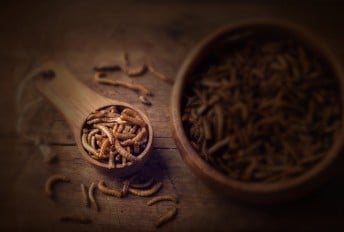
Posted on June 11, 2025
Cricket à la king? How about a yellow mealworm burger? Foods that may previously have evoked a ‘yuck’ response are now firmly on the menu. Research into edible insects by the Department of Zoology and Entomology at the University of Pretoria (UP) is exploring how to rear and harvest...

Posted on May 21, 2025
University of Pretoria (UP) researchers have found that the antioxidant content of certain types of tea can be likened to that found in recommended portions of fruit and vegetables.

Posted on May 12, 2025
Researchers at the University of Pretoria (UP) may have identified the gene that is responsible for diet-related obesity. By exploring the role of the novel gene Slc7a8, they have made a potential breakthrough in current knowledge about the cellular mechanisms that drive fat accumulation. This...

Posted on April 17, 2025
The latest issue of the University of Pretoria’s award-winning RE.SEARCH magazine is available now and reflects a shift towards both a fresher design and outlook. This edition is curated under the theme ‘Digital’, and offers a glimpse into some of the fascinating research...

Posted on November 22, 2024
The articles in this edition showcase work from all nine of our faculties, and underscore our University’s slogan ‘Make today matter’. RE.SEARCH has been named South Africa's top corporate publication as the winner of the 2024 SA Publication's Forum Awards. It is a runner up and...

Posted on August 26, 2024
RE.SEARCH 9 is our most novel edition yet. In it, we have featured research that encourages us to think afresh, and is doing so, we’ve highlighted new ways of looking at research. You can expect to read about research that has potential and promise for the future but which is still nascent...

Posted on July 04, 2024
Young children in Krugersdorp are breathing in uranium, arsenic and mercury fumes wafting over from abandoned legacy mines, while pollutants are seeping into the groundwater and nearby dams and lakes, cautions Dr Alseno Kagiso Mosai, a water remediation expert at the University of...

Posted on June 04, 2024
University of Pretoria (UP) scientists have contributed to discovering how the naked mole rat is able to withstand heart attacks and fend off bowel cancer, two of the most fatal human ailments in the developed world. Their findings were published recently in two Nature Communications papers.

Posted on May 07, 2024
In a world in which there is an ever-encroaching digital footprint and high-tech solutions, it is vital that we reconnect with an outlook of compassion, care and communication. We do this through connection and connectivity. The theme of our latest issue, ‘Connect’, highlights how UP...
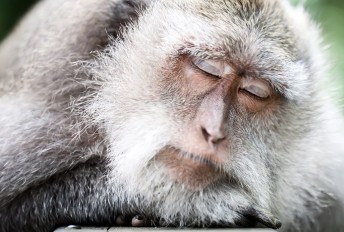
Posted on October 23, 2023
The quest for immortality has long fascinated humans, and inspired countless tales – now, in two new studies published in the journals Nature and Science, University of Pretoria (UP) researchers, along with a team of global experts known as the Mammalian Methylation Consortium, are a step...
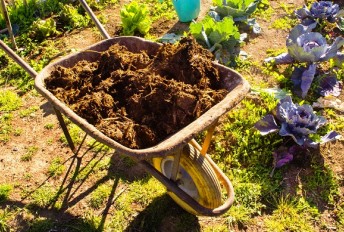
Posted on August 24, 2023
University of Pretoria (UP) researchers lent their expertise to a recent study led by the University of KwaZulu-Natal and found that rural farmers in KwaZulu-Natal are open to buying and using compost made from human sewage as long as they can be sure that it is safe, affordable and works as well...
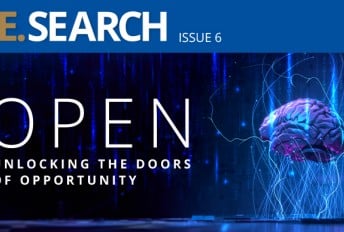
Posted on July 26, 2023
This issue features research from all of the University of Pretoria's nine faculties and our business school, the Gordan Institute of Business Science (GIBS) and shows how our research is opening a new world and a better future.
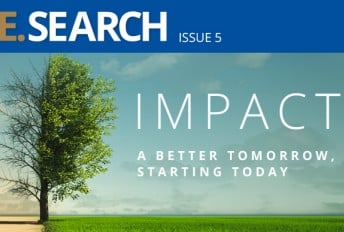
Posted on April 17, 2023
This issue of RE.SEARCH looks at the impact of the University of Pretoria's research from early childhood interventions and the use of traditional medicines for holistic nursing to the role of women in peacekeeping efforts. The issue also provides insight into the critical question of coal power...
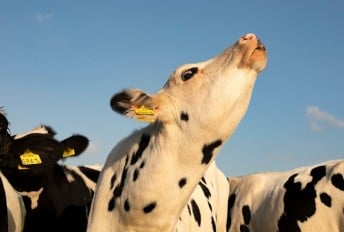
Posted on March 15, 2023
A University of Pretoria (UP) study has shown that playing soothing classical music to dairy cows lowers their stress levels and increases their milk production.
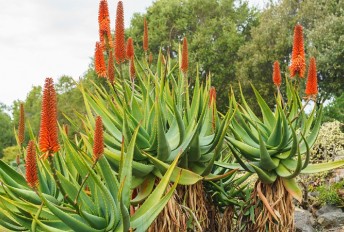
Posted on February 09, 2023
Experts at the University of Pretoria (UP) are a step closer to finding a drug that could prevent transmission of the malaria-carrying parasite Plasmodium falciparum by thwarting its life cycle.
Copyright © University of Pretoria 2025. All rights reserved.
Get Social With Us
Download the UP Mobile App